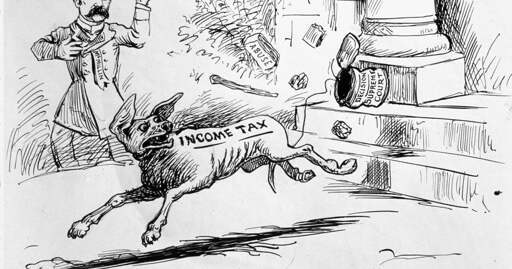For a few short years during and after the Civil War, the United States imposed its first tax on income to help fund the massive costs of the war. Placed on relatively high incomes but only collecting a modest percentage, it was cast as both a way to generate needed revenue and a way to maintain fairness.
Yes, that’s right, one of the chief selling points of taxing income was that it was a way of achieving “equity” in the burdens of the war. Responding to allegations that only poor men were fighting and dying, President Abraham Lincoln and his Republican Party made sure the law required that the taxes people paid would be publicly disclosed. Unsurprisingly, the wealthy men of the dawning Gilded Age did not like seeing their tax information in the pages of The New York Times. Wealthy interests forced a repeal of the income tax in 1871, and the federal government returned to funding itself with proceeds from user fees and tariffs.
Efforts to rein in the rich persisted, however. Congress moved in 1894 to reintroduce an income tax. The populist Kansan politician William Jennings Bryan gave a famous speech on the floor of Congress. Responding to the argument that the wealthy would leave America if they had to pay such a tax, then proposed as 2% on the top incomes, he said:
“Of all the mean men I have ever known, I have never known one so mean that I would be willing to say of him that his patriotism was less than 2 per cent deep. … If ‘some of our best people’ prefer to leave the country rather than pay a tax of 2 per cent, God pity the worst.”
It’s hilarious that the rich were screaming about a 2% income tax.


